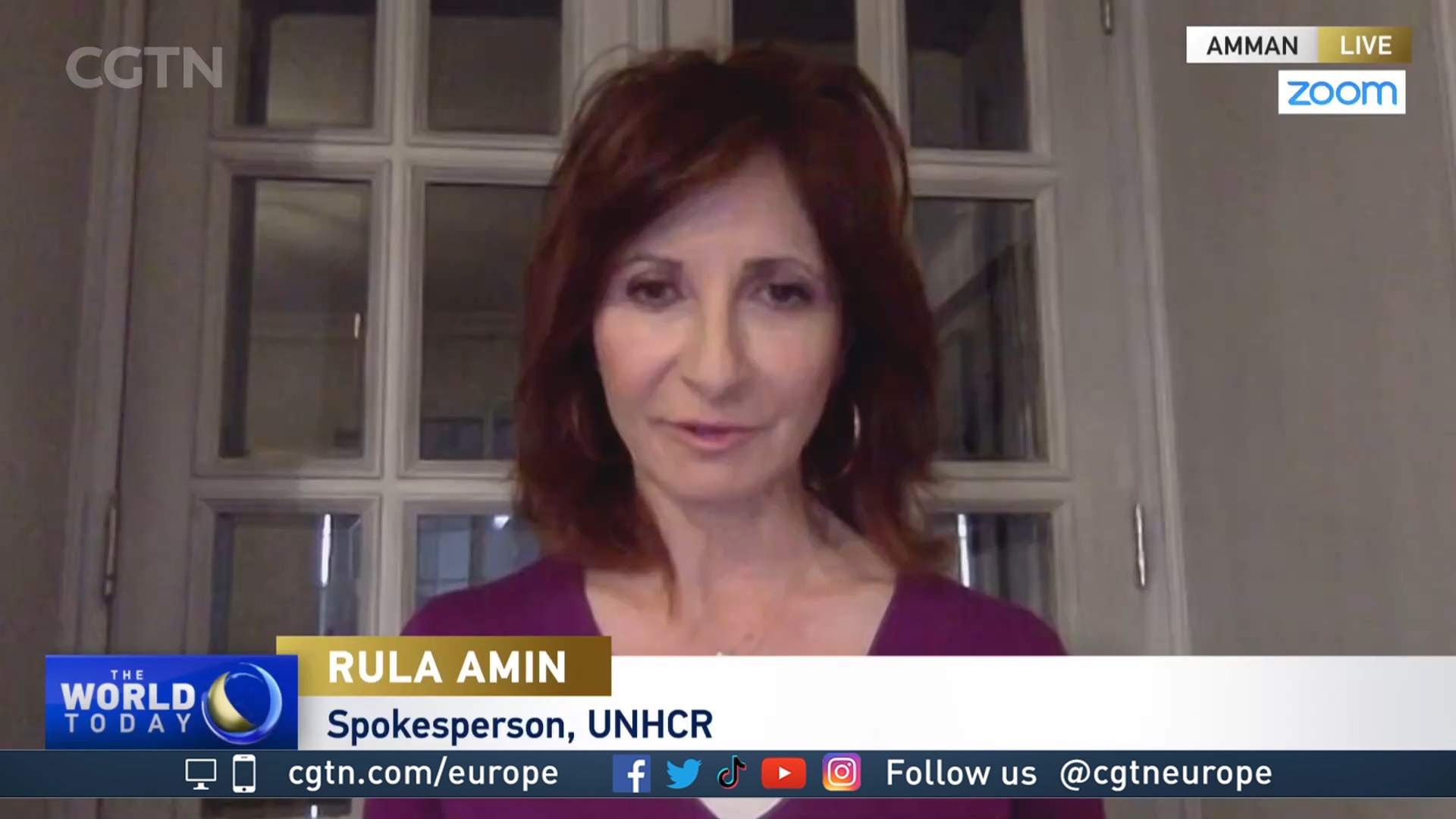04:53

According to the United Nations, this week's earthquake has affected nearly 11 million people in Syria – a country where many people have already been displaced by the war that has been going on since March 2011.
Homes have been destroyed, and winter storms are now hampering aid efforts leaving many hungry and freezing.
CGTN Europe spoke to Rula Amin, Spokesperson for the United Nations High Commission for Refugees (UNHCR), Middle East and North Africa, to understand the gravity of the situation on the ground.
"The priority should be the rescue and search efforts – the bodies that are under the rubble need to be taken out," Amin explained. "More importantly, the people who are still buried alive under the rubble, need to be rescued. But unfortunately, there's not enough equipment to help people. We have seen people doing it with their bare hands."
READ MORE
Why have Türkiye's earthquakes proved so deadly?
Baby rescued from rubble 68 hours after earthquake
Rescue workers save dog trapped under earthquake rubble
Amin painted a bleak picture and said it will continue to be extremely challenging for the survivors in the days and weeks to come.
"They need shelter to protect themselves from another [aftershock], from the snow and the heavy rains. They need to be able to protect their children," she warned, going on to highlight how the displaced communities in Syria affected by the tragedy do not even have basics such as food, mattresses, blankets and medication.
Amin said they are in urgent need of medical attention and must be offered psychological support.
'They're desperate for assistance'
The crisis in Syria has lasted more than a decade and has left more than 6.8 million Syrians internally displaced. And they have found themselves in a really vulnerable situation now after the earthquake.
"They were living in flimsy shelters, tents, partially destroyed buildings and weak structures… even if these structures did not collapse, these have become unsafe and could collapse any minute. So these people all have to flee [once again]. They are staying in schools, in mosques. They're desperate for assistance," said Amin.

Syrians warm up by a fire at a makeshift shelter for people who were left homeless, near the rebel-held town of Jindayris, after the deadly earthquake. /Rami Al Sayed/AFP
Syrians warm up by a fire at a makeshift shelter for people who were left homeless, near the rebel-held town of Jindayris, after the deadly earthquake. /Rami Al Sayed/AFP
The UNHCR has mobilized all resources at its disposal inside Syria, including tents, blankets and winter clothes, as the first aid convoy arrived in Syria despite the very difficult circumstances.
For the last three years, there has been a border crossing from Türkiye into northwest Syria, through which the Security Council has authorized United Nations humanitarian agencies, like the UNHCR, to bring in humanitarian relief to northwest Syria.
But the main roads have been damaged by the recent earthquakes, making the transportation of relief goods difficult.
'They feel abandoned by the world'
Amin is concerned that these people are particularly vulnerable due to the hardships they have already endured.
"They feel they have been abandoned by the world. Their needs have been growing with each passing year of displacement and crisis," she saud.
"Yet, finances and attention to meet their needs have been dwindling with [people's focus diverted to] so many other crises in the world. People think things get easier [with time], it's not true, it gets more difficult."
In Syria, 15 million people – more than 70 percent of the population – needed humanitarian assistance to survive even before the earthquake hit. So what can the world do now?
"They need more support," Amin said. "They need the international community to step forward, to assist and to tell them that they are on their side. It's very important not to forget the Syrians."